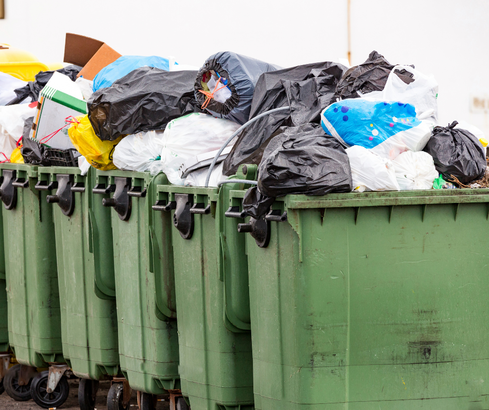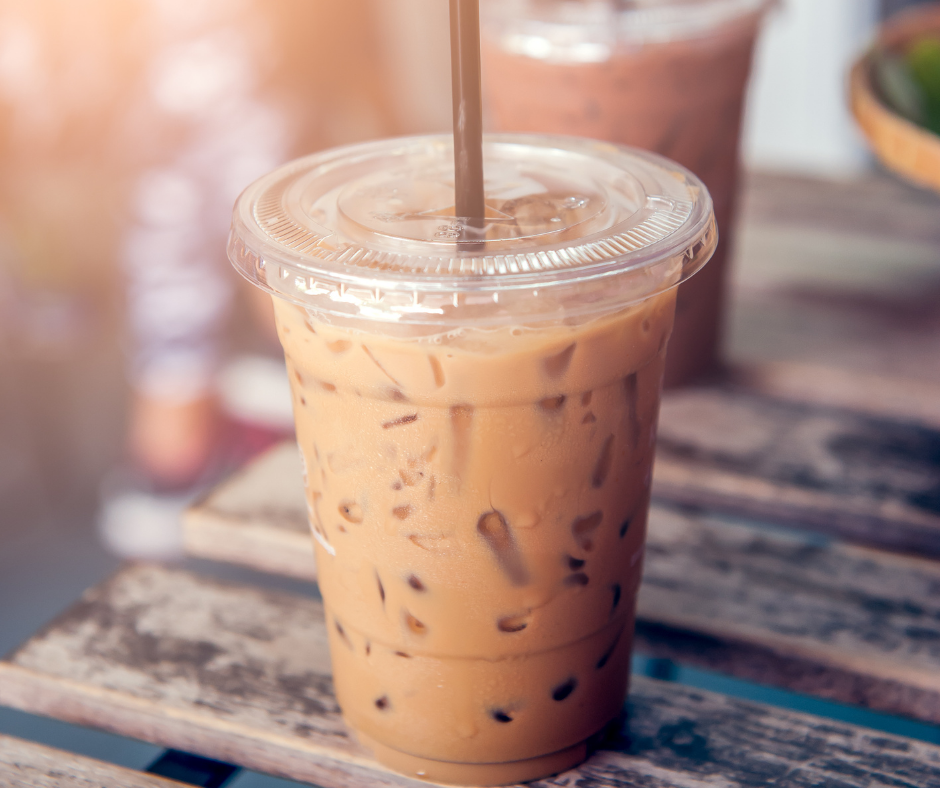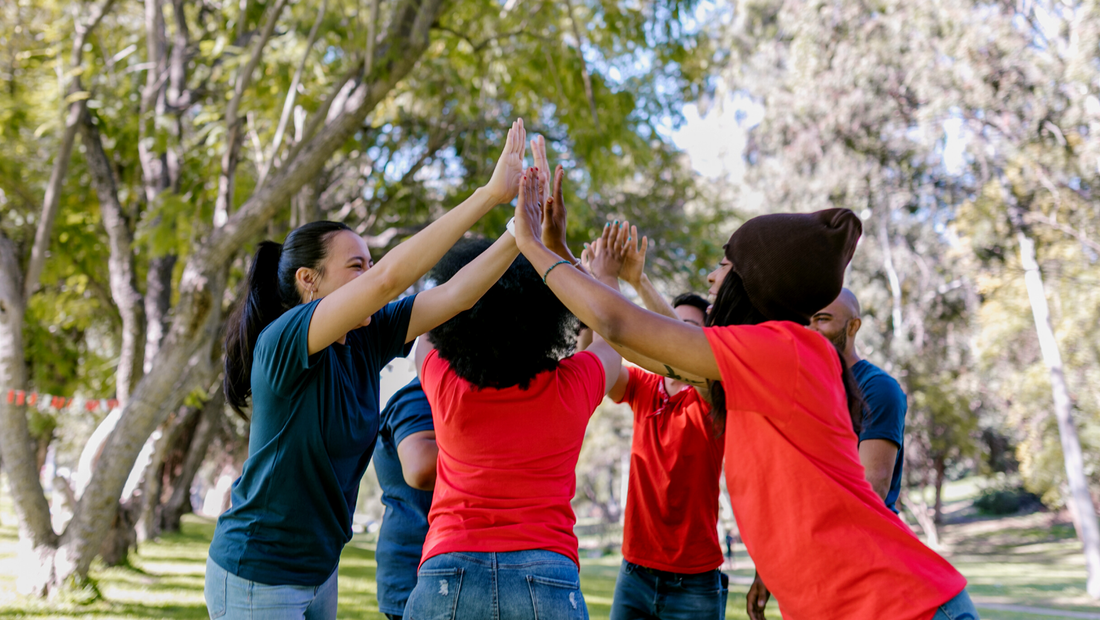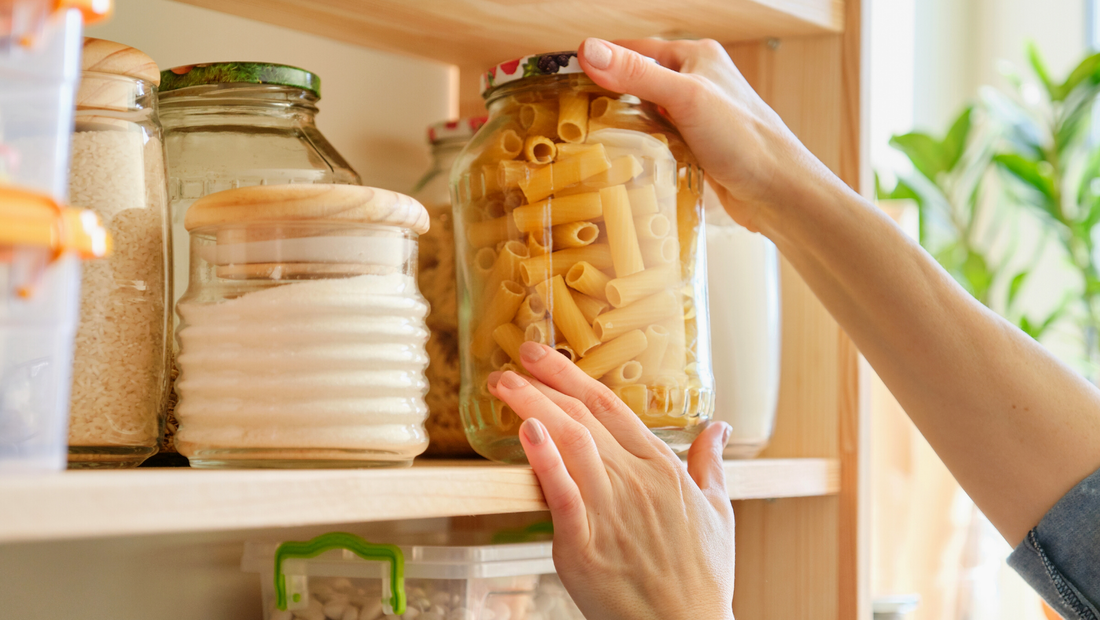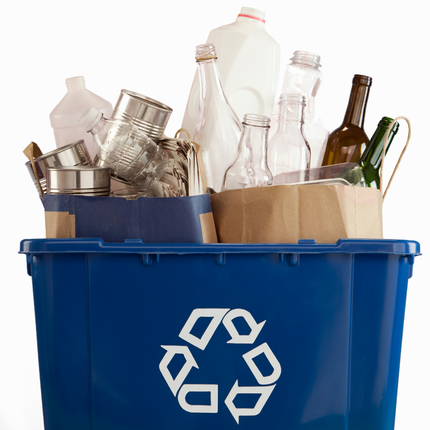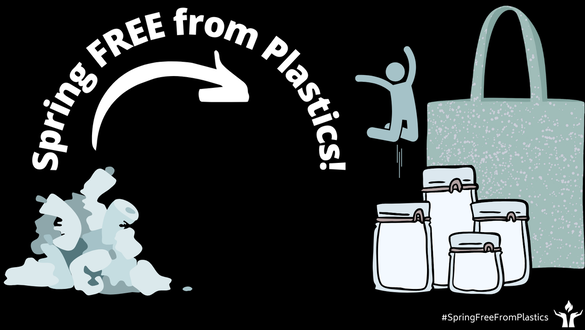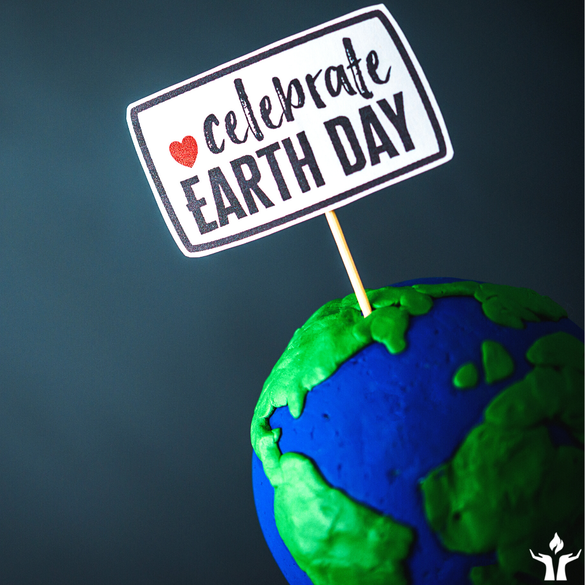|
SPRING FREE FROM PLASTICS 2022 : HOW'D IT GO?
While there were not many who participated in our Final Week’s summing up of their Plastics Experiences, we did have a number of verbal, written and email contributions to our HOWZIT GOING BOARDS. We also had some excellent sharing in “breakout rooms” at several Hospitality Hours. Here’s a collation of input. |
Spring Free From Plastic 2022 finished on Earth Day, but every day is a great day to cut down on single-use plastics in your life! Click HERE to find the weekly challenges and Spring Free from Plastic any time!
|
|
HOWZIT GOING? IT’S HARD. IT’S A CHALLENGE.
Largest number of complaints about over-wrapping of food items
|
|
Over-wrapping of other items
Unwillingness to take back containers or to allow use of own containers for bulk items
|
Plastic is everywhere
Garbage and compost
Existential frustration
- Many items from coffee to cookies to manure are sold in non-recyclable plastic bags
- Even our car tires are no longer made of rubber but plastic which leaves microplastics behind
Garbage and compost
- If I don’t use plastic bags what do I do with garbage and green bin?
Existential frustration
- Why won’t people listen; why don’t they see this crisis as important?
- Why is it taking so long for the single use plastics ban to be implemented? Why are plastic water bottles not included?
|
HOWZIT GOING ? ROCKIN’ IT
Many of you contributed ideas to decrease your plastic footprint. I have grouped them below. The “R”s at the beginning of the list are the preferable place to start. Recycing should not be the first, but the final option! RETHINK Ultimately we must rethink the way we live our lives; be happier with less stuff; educate ourselves; eliminate plastic from our lives. Start where you’re at; work bit by bit: |
- Grow your own food; start with herbs; bought at the store they are often heavily packaged and expensive.
- Support local food markets
- Buy things in higher concentration; item may still be in a plastic bottle but you will buy it less frequently
- Make own food; hummus, tabbouleh and yogurt are easy; eliminate all those plastic containers
- Look for compostable packing bags eg Fluid Solar Roasted Coffee Co
- Change to a store which supports zero waste
- Be open to new ideas: try tooth powder, or tooth pills rather than toothpaste in plastic tubes; try deodorant bars, hard soap bars for shampooing, conditioning and dishes
- Try laundry powder or tablets or laundry strips
REFUSE
- Refuse to buy salad greens, spinach etc in plastic containers; buy loose, bring own container or bag; refuse to buy wrapped produce, peppers, lettuce, apples, oranges
- Refuse to buy fish/meat/chicken wrapped in plastic; ask it be wrapped in paper or put in a container you bring
- Refuse plastic wrap; leave in store
- Slow checkout at store as a protest…collect all produce in a reusable beg; at checkout set empty bag to weigh, then weigh total produce
- Go to a store which supports zero waste; tell your store why
- Refuse toilet paper wrapped in plastic; insist on paper wrapped in paper
- Refuse water in disposable plastic bottles in favour of easily-recycled cans and glass or bringing your reusable water bottle
|
REPLACE
|
- Saving leftovers:
- Instead of plastic containers use metal or glass
- E.G.: When your reusable plastic food containers start to crack and break from age and use, replace them with wide-mouth mason jars or glass dishes with robust reusable lids
- Instead of plastic wrap, cover with bees waxed cloth – works well if you hold the edges together with your hands to warm it a bit — or stretchy silicone lids In a variety of sizes
- Alternatively, cover a bowl with a tea towel or other folded cloth, and then put a plate on top for fridge storage
- Instead of resealable plastic bags, use resealable silicone bags
- Instead of plastic containers use metal or glass
- Instead of buying milk by the gallon in single-use plastic bags, opt for returnable glass bottles or plastic jugs that will be reused by the suppliers, or choose recyclable cartons
REDUCE Rethinking, Refusing and Replacing plastics will go a long way to reducing one’s plastic intake
REUSE
- Buy Nothing Ottawa works well
- At home: wash out and reuse plastic zip-top bags, peanut butter jars, etc
- In stores:
- Bring your own reusable bags and bins
- Reuse plastic bags of all kinds
- Bring own glass jars for purchase of bulk supplies, eg baking supplies
- Use home containers as measures for bulk supplies: eg for making granola, found containers that measured ½ C, 1C, 2 C, 12 C etc and labeled each container with the ingredient, eg. ground flax, sesame seeds, sunflower seeds, and oats
- Save on plastic containers: Shop at the Ecobar at Terra 20: refill containers for some products including various cleaners, dish soap, laundry detergent, hand and body wash, shampoo, conditioner, soap, sunscreen spray
|
RECYCLE
Recycling should be the last resort.
|
Thanks to Carmen, Colleen, Elisabeth, Elspeth, Mike, Clea, Eva, Susan, Sookie, Tom, Margaret, Mary, David, Mary, Anne, Phil, Katherine, Mary Ella, Marianne, Ed, Brent for their input. We will contact you with your participant’s reward. If we have missed anyone, let Donna or Eva know.
Worthwhile Links for Zero Waste
|
Recommended Reading
Big Green Purse by Diane Maceachern Download FirstU's List of Local Businesses who support Zero Waste options Toilet Paper Options Laundry Options City of Ottawa Green Bin Hints |
Spring Free from plastic 2022
This spring the Environmental Action Group challenges you to look at the part plastic plays in your life and seek ways to decrease its role.
Join us for four weeks of challenges, starting on March 20, the Spring Equinox, followed by a "How did you do?" week. We will finish up on April 22, Earth Day.
Join us for four weeks of challenges, starting on March 20, the Spring Equinox, followed by a "How did you do?" week. We will finish up on April 22, Earth Day.
To get you motivated, let’s look at why “Springing Free from Plastic” is so important.
As Unitarian Universalists, our seventh principle calls on us to respect and nurture the interdependent web of all existence of which we are a part. Reducing plastic use is just one of the steps we need to take to ensure environmental sustainability.
Plastics create environmental concerns throughout their entire lifecycle from production, through use, to waste. They are derived from fossil fuels and emit greenhouse gases not only in their extraction and production, but also in their recycling and disposal. And as the world is moving towards renewable energy, and the demand for oil and gas is decreasing, fossil fuel companies have invested heavily in the marketing of new plastics worldwide to provide an end use for their faltering industry.
The proliferation of plastic waste is global, but Canadians are among the highest producers of plastic, and among the top per capita users and creators of its waste in the world. Each year we produce over four million tons of plastic, of which 3.3 million tons is thrown away. Only 9 per cent is recycled. The rest ends up in landfills or in our waterways where it is ingested by and entangles wildlife. Plastics leach toxic materials into water, which are consumed by marine life and passed up the food chain to humans. Eventually all plastics break down into micro bits, which we all eat and breathe in.
This past December, the federal government finally released its draft regulations banning six kinds of single use plastic including straws and stir sticks, six pack rings, grocery bags, cutlery and difficult to recycle takeout containers, with possible implementation by the end of 2022. A group of fifty environmental organizations say it’s a good first step, but that to meet their “zero plastic waste future by 2030” pledge, a more comprehensive ban is needed and sooner. Water bottles, takeout coffee cups and lids, and plastic films, for example, are not included; technical definitions may allow the banned items to be replaced by sturdier plastic items, which are technically reusable, but likely to be treated as disposable; and the draft only regulates import and sale in Canada. This means Canadian companies can continue to produce harmful products for export which seems not only short sighted but immoral. The proposed thermal treatment of waste for recycling as a solution is unproven, expensive and polluting.
We cannot recycle our way out of this. Our national government must work to regulate the production of plastics. In addition, Canada must move off the sidelines and join those countries working to support a legally-binding global treaty that addresses the full lifecycle of plastic from production to use to waste.
Change in plastic regulation is essential at the structural level. We can join others in advocating for action from our governments and large commercial enterprises to address plastic use and waste. At a personal level, we can be part of the solution by integrating suggestions in our “Spring Free From Plastics Challenge” into our lives. Please join us.
As Unitarian Universalists, our seventh principle calls on us to respect and nurture the interdependent web of all existence of which we are a part. Reducing plastic use is just one of the steps we need to take to ensure environmental sustainability.
Plastics create environmental concerns throughout their entire lifecycle from production, through use, to waste. They are derived from fossil fuels and emit greenhouse gases not only in their extraction and production, but also in their recycling and disposal. And as the world is moving towards renewable energy, and the demand for oil and gas is decreasing, fossil fuel companies have invested heavily in the marketing of new plastics worldwide to provide an end use for their faltering industry.
The proliferation of plastic waste is global, but Canadians are among the highest producers of plastic, and among the top per capita users and creators of its waste in the world. Each year we produce over four million tons of plastic, of which 3.3 million tons is thrown away. Only 9 per cent is recycled. The rest ends up in landfills or in our waterways where it is ingested by and entangles wildlife. Plastics leach toxic materials into water, which are consumed by marine life and passed up the food chain to humans. Eventually all plastics break down into micro bits, which we all eat and breathe in.
This past December, the federal government finally released its draft regulations banning six kinds of single use plastic including straws and stir sticks, six pack rings, grocery bags, cutlery and difficult to recycle takeout containers, with possible implementation by the end of 2022. A group of fifty environmental organizations say it’s a good first step, but that to meet their “zero plastic waste future by 2030” pledge, a more comprehensive ban is needed and sooner. Water bottles, takeout coffee cups and lids, and plastic films, for example, are not included; technical definitions may allow the banned items to be replaced by sturdier plastic items, which are technically reusable, but likely to be treated as disposable; and the draft only regulates import and sale in Canada. This means Canadian companies can continue to produce harmful products for export which seems not only short sighted but immoral. The proposed thermal treatment of waste for recycling as a solution is unproven, expensive and polluting.
We cannot recycle our way out of this. Our national government must work to regulate the production of plastics. In addition, Canada must move off the sidelines and join those countries working to support a legally-binding global treaty that addresses the full lifecycle of plastic from production to use to waste.
Change in plastic regulation is essential at the structural level. We can join others in advocating for action from our governments and large commercial enterprises to address plastic use and waste. At a personal level, we can be part of the solution by integrating suggestions in our “Spring Free From Plastics Challenge” into our lives. Please join us.
Spring Free From Plastic - Any Time!
Here are your challenges! Click on each week to download the worksheet.
Good luck! (Click HERE to download a list of local businesses who can help you go plastic-free!)
Here are your challenges! Click on each week to download the worksheet.
Good luck! (Click HERE to download a list of local businesses who can help you go plastic-free!)
For each of the four challenge weeks, there will be 5 individual challenges to attempt, including a community action. You can keep track of how successful you were, and some of the difficulties you encountered. And record any creative solutions you came up with and wish to share.
Links to Weekly Challenges and Charts will be available each week in the eUU, on the Climate Action Page, and on the Face Book pages for Unitarians for Climaction, the First Unitarian Congregation of Ottawa and the First U Ottawa Community Group. We will make hard copies available for those who request them.
At the end of the Challenge, we're hoping that you'll share your experience, particularly your successes, your frustrations and your innovations at our Challenge Wrap-up on April 20, Earth Day.
Links to Weekly Challenges and Charts will be available each week in the eUU, on the Climate Action Page, and on the Face Book pages for Unitarians for Climaction, the First Unitarian Congregation of Ottawa and the First U Ottawa Community Group. We will make hard copies available for those who request them.
At the end of the Challenge, we're hoping that you'll share your experience, particularly your successes, your frustrations and your innovations at our Challenge Wrap-up on April 20, Earth Day.


